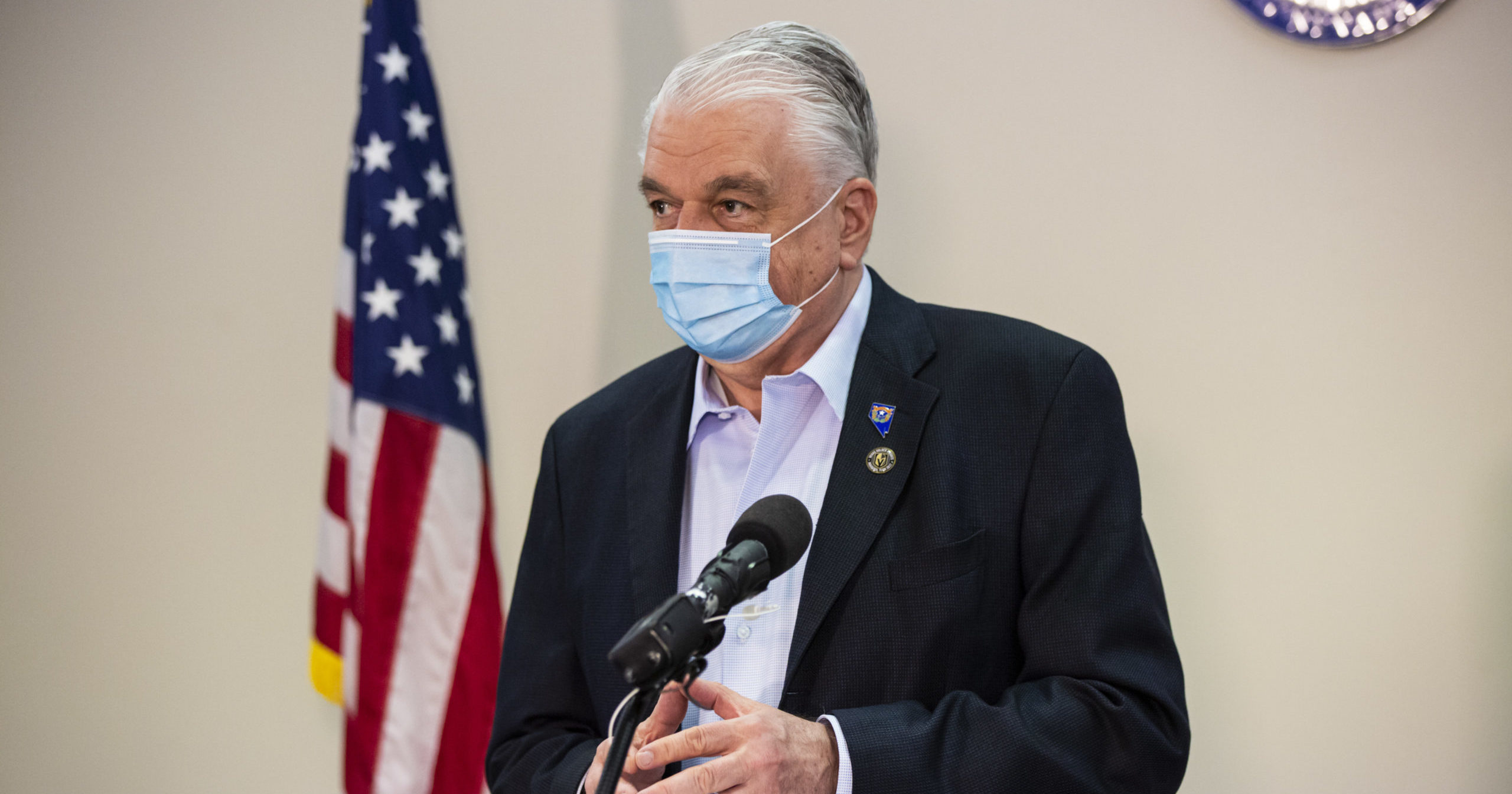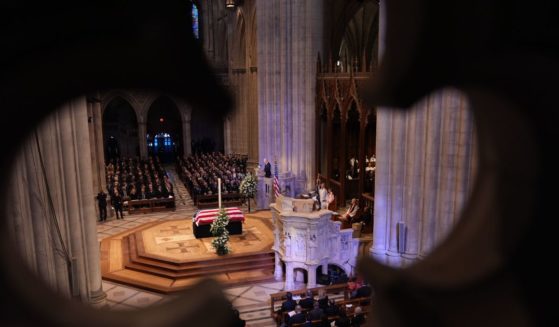
Dem Governor May Back Down in Church's Fight for Religious Freedom
Nevada Gov. Steve Sisolak said Thursday he is pursuing the possibility of easing coronavirus restrictions on religious gatherings as a rural church pushes forward with its legal effort to strike down the current 50-person cap as unconstitutional.
Lawyers for Calvary Chapel Dayton Valley filed new briefs in the 9th Circuit Court of Appeals in San Francisco on Wednesday after the U.S. Supreme Court narrowly refused its bid in July for an emergency order suspending the hard cap.
Sisolak, who is Roman Catholic, said Thursday he has asked his advisers to review whether the state can ease that restriction, among others, and allow churches to expand how many people can attend.
“We’ve been researching different approaches in terms of how to do that, and using best practices that have been developed in other states,” he said at a news conference in Las Vegas.
“Trust me, I want to get back to church. I want to go back to mass live instead of watching it on my phone every weekend,” he said.
The Democratic governor did not have a timeline for when he would announce a decision or any specific benchmarks necessary to make a change.
Calvary Chapel’s lawyers are emphasizing the three dissenting opinions from the high court’s 5-4 decision in their latest bid to prove that parishioners’ religious freedoms are being violated partly because casinos and others are allowed to operate at 50 percent capacity.
Other secular businesses allowed to operate at half capacity include restaurants, gyms, hair salons, bowling alleys and water parks.
The Christian church in Lyon County wants to allow as many as 90 people to attend services at the same time — with masks required, spaced 6 feet apart — at the sanctuary east of Reno with a capacity of 200.
David Cortman, senior counsel for the Alliance Defending Freedom representing the church, dismissed Sisolak’s latest comments.
“There’s really nothing to research. Other states ask churchgoers to wear masks and to socially distance in their worship spaces, just like the governor asks of those going to casinos and amusement parks,” Cortman said in a statement emailed to The Associated Press late Thursday.
“Given how common this accommodation is in other places — and the Governor’s confidence that it works for thousands of casino goers — it’s incredible we have to litigate this,” he said.
The church’s new 9th Circuit brief says Sisolak’s past claim that the hard cap on churches is needed to guard against the spread of coronavirus “defies reason.”
“A casino entertaining 1,000 gamblers has no impact on public health while Calvary Chapel increasing its service size from 50 people to 90 would cripple the state’s health effort?” they asked in Wednesday’s filing, accusing the state of putting profits ahead of the First Amendment.
“It has everything to do with Nevada’s person-based tourism economy,” they said.
The Supreme Court’s decision in July followed the 9th Circuit’s refusal to grant temporary injunctive relief after a federal judge in Reno upheld the state policy in May and again in June.
“Calvary and its counsel should not be allowed to continually second-guess Nevada’s efforts to protect public health against a novel, highly contagious virus,” Nevada’s Deputy Solicitor General Craig Newby wrote in mid-August.
But the church argues the landscape has changed.
“This is not just a 14-day or 30-day temporary, emergency measure,” it said.
“Restricting religious gatherings for more than five months, with no end in sight, is not a rapidly changing, temporary measure that deserves substantial deference. It is government overreach in clear violation of constitutional principles.”
Sisolak insists the policy is legal because it doesn’t target religious establishments or attempt to regulate speech based on ideology or opinion. He maintains casinos are different because they are licensed by the state and subject to restrictions beyond the virus guidelines.
“Choosing to reopen a highly regulated industry, that is subject to significant regulatory control that allows for a rapid shutdown if a second COVID-19 outbreak arises, makes sense,” the state says.
Several courts across the country have considered similar cases in recent months, but Nevada’s case is the only one the U.S. Supreme Court has considered since it upheld restrictions on religious gatherings in California in May.
Chief Justice John Roberts sided with the liberal majority in denying Cavalry Chapel’s request without explanation.
Justices Brett Kavanaugh, Neil Gorsuch and Samuel Alito each wrote their own dissent, the latter joined by Kavanaugh and Clarence Thomas.
“That Nevada would discriminate in favor of the powerful gaming industry and its employees may not come as a surprise, but this Court’s willingness to allow such discrimination is disappointing,” Alito wrote July 25.
“There are certain constitutional red lines that a state may not cross even in a crisis,” Kavanaugh added in his own dissent.
Gorsuch said: “There is no world in which the Constitution permits Nevada to favor Caesars Palace over Calvary Chapel.”
The Western Journal has reviewed this Associated Press story and may have altered it prior to publication to ensure that it meets our editorial standards.
Truth and Accuracy
We are committed to truth and accuracy in all of our journalism. Read our editorial standards.
Advertise with The Western Journal and reach millions of highly engaged readers, while supporting our work. Advertise Today.












